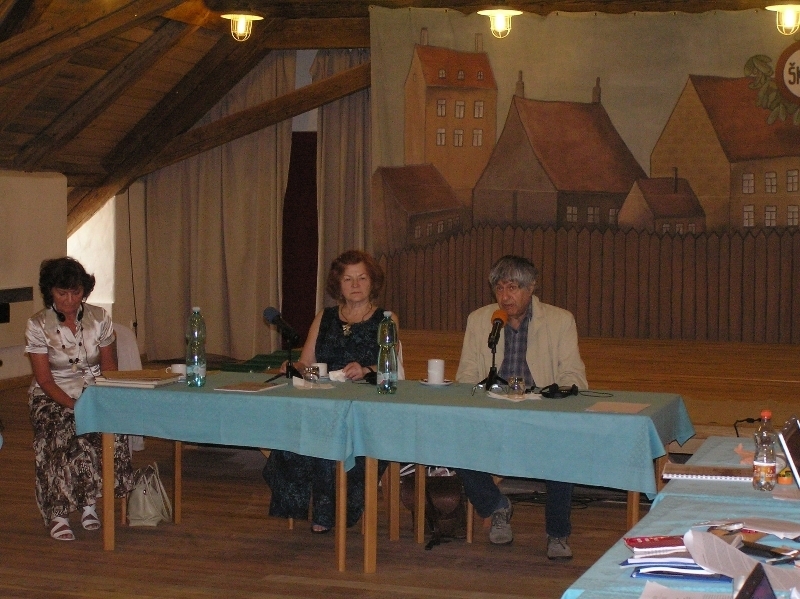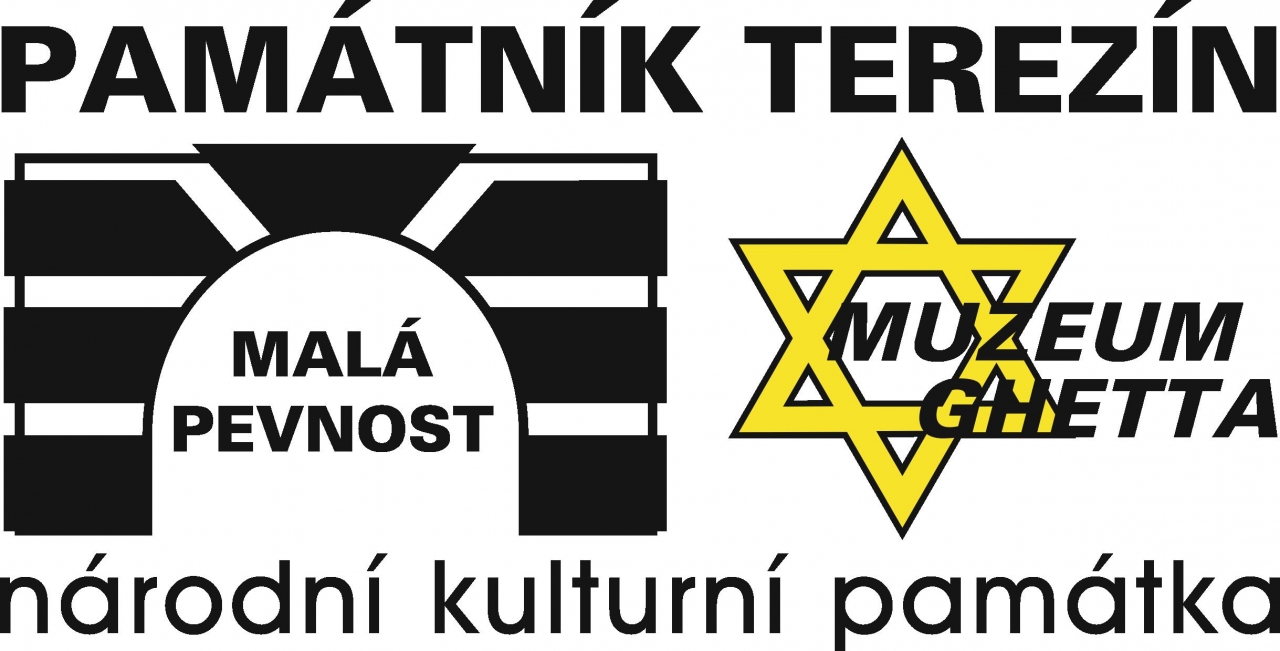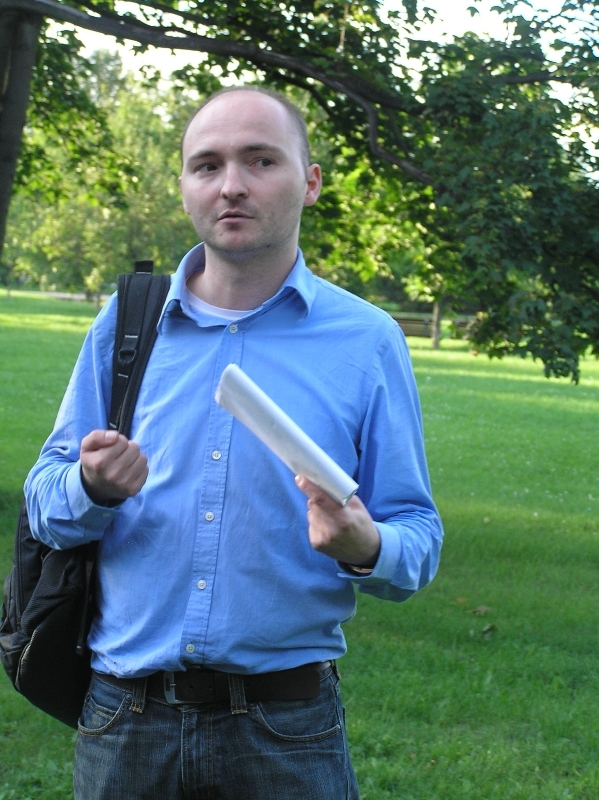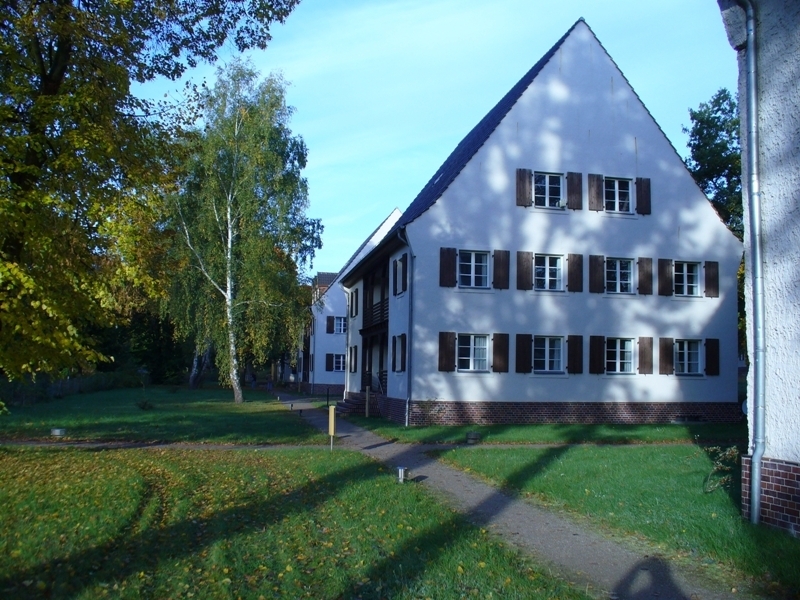
Mr. and Mrs. Klíma during their meeting with French teachers at the attic of the former Magdeburg Barracks
The late summer and autumn of 2010 at the Terezín Memorial’s Education Department was marked by educational seminars for teachers. At the end of August there was a seminar for French and Italian teachers, organized in cooperation with the French memorial Maison d´Izieu and the French Ministry of Defence which also provided a grant for the teachers. Participants from many places in France and northern Italy spent three days in Terezín, full of lectures, workshops, tours and discussions with Holocaust survivors. The programme was organized by employees of the Education and History Departments of the Terezín Memorial, but due to the expanded topics covered, also by external historians. The topic of development of the Protectorate and the Holocaust in our countries was put into context of the overall history and development of the First Czechoslovak Republic by the historian Petr Koura who also outlined the individual steps that led to the Munich Dictate and eventually the establishment of the Protectorate of Bohemia and Moravia. Another exceedingly interesting point of the programme was a discussion of the documentary “Un Vivant qui passé”, an interview between Claude Lanzmann and Maurice Rossel on the role of the Terezín ghetto in the Nazi propaganda. The next day had lectures on education at the Terezín Memorial, with focus on spiritual life and lives of children in the ghetto. The participants learned about the history of the former police prison in the Small Fortress. They then actively participated in workshops of the Education Department. One of the peak points of the programme was a meeting with the writer Ivan Klíma and his wife, Helena Klímová, whose recounting of their own history during and after the war served as a unique illustration that contributed to the seminar’s overall ambiance.
The next two days were then dedicated to a tour of the Lidice Memorial and Jewish sights in Prague. The participants also visited the Franz Kafka Museum and had a guided tour of places related to the Communist regime and the resistance against it with the historian Thomas Hejda. The French teachers left with very positive impressions of the programme and meetings with many interesting people, ready to face the new school year with renewed vigour.
The two seminars that followed, this time for Czech teachers, organized by the Terezín Memorial in cooperation with the Ministry of Education, Youth and Sports of the Czech Republic, took place during the school year. They were the III grade seminar in the former Ravensbrück concentration camp in Germany and the subsequent IV grade seminar at the Yad Vashem Memorial in Israel. The seminar at Ravensbrück took four days, one of which the participants spent in the Wannsee House in Berlin, Germany. They took a tour of the villa, which houses an exposition on the Holocaust and visited the room itself where the Wannsee Conference took place in the January of 1942. The experience was made even stronger by the captivating lecture on the main protagonists and development of the conference. The programme also included a workshop, which had the teachers work with the minutes of the aforementioned Wannsee Conference. The second day was spent directly in the former Ravensbrück concentration camp. A part of the programme was formed by a highly interesting presentation of school projects overseen by the seminar participants. The extensive programme provided a plethora of new information on the subject at hand to the teachers who engage in this series of educational seminars.
More on the seminar at the Yad Vashem Memorial will be published in the Newsletter 1/2011.
Se



